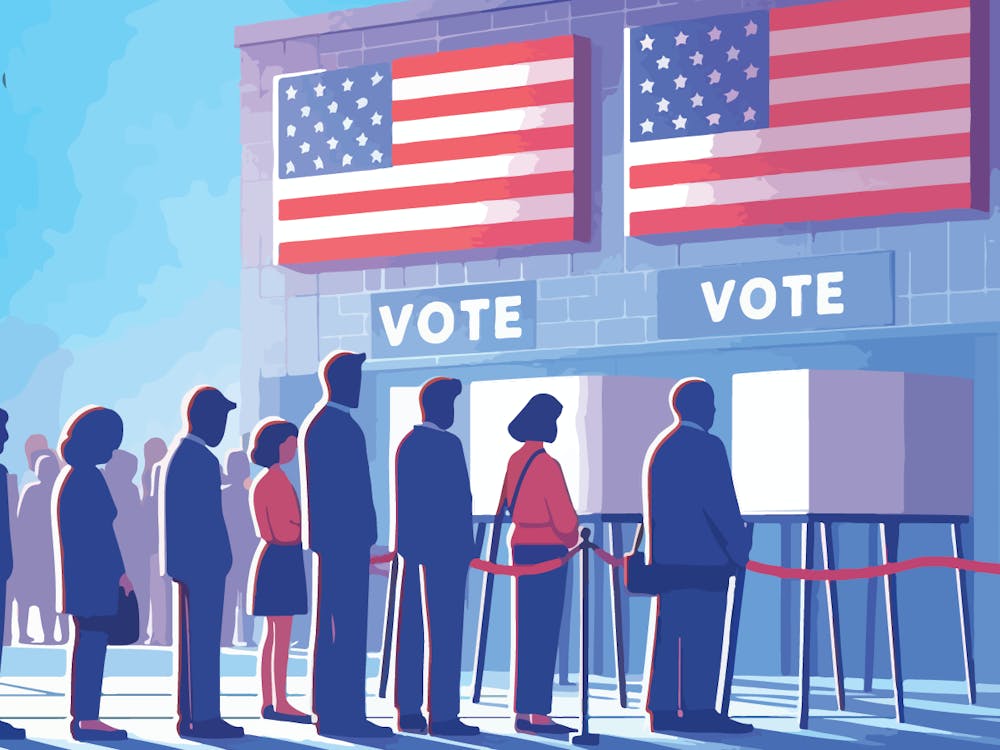Vice President Kamala Harris has long been deemed Generation Z’s meme queen, with online communities making her the subject of political satire on sites like TikTok, X and Reddit. Harris’ July 21 campaign endorsement from British popstar Charli XCX and subsequent viral memes dubbed the candidate as “brat” — the singer’s album name.
As the upcoming election season approaches, a new wave of voters prepares to hit the booths for the first time. This generation's media consumption habits differ significantly from their predecessors, posing unique challenges and opportunities for political engagement.
Center for Information and Research on Civic Learning and Engagement projections indicate 8 million youth will become eligible to vote this year, adding to a total 41 million members of Gen Z eligible to vote in 2024. The diverse and politically engaged generation could significantly influence the upcoming elections.
In Alachua County, the total number of active voters aging into the electorate is about 5% of the active voter population, according to July 15 voter registration data.
Rather than focus on tried and true campaign efforts with older generations, Harris is leaning into an online presence with the younger crowd through coconut tree memes and neon green branding following President Joe Biden’s announcement to end his reelection campaign.
The references to the coconut tree on social media come from a speech the vice president gave in May 2023 where she went viral saying, “You think you just fell out of a coconut tree?” followed by a laugh. “You exist in the context of all in which you live and what came before you.”
The Democratic party seems to be utilizing social media as a tool to reach Gen Z, credentialing 200 social media influencers for the Democratic National Convention later this month.
“Gen Z doesn't consume content from newspapers,” said Andrew Selepak, a UF social and political media professor. “They're not listening to the radio or watching TV news in terms of their content and their information that they're getting about what's going on in the world, about politics, about geopolitical situations.”
Selepak said young people consuming news through social media may only gain a surface-level understanding.
“The big thing when you're consuming news from video, like TikTok, is that it gives you the knowledge of the different things that are going on, but not necessarily a deep understanding,” Selepak said. “They're short clips, a lot of times… they're not getting the background, they're not getting the sort of the history behind topics.”
The contrasting media habits of older generations who consume more traditional media may lead to more established opinions and less susceptibility to influence from social media trends, he said.
Selepak said the recent virality of Harris’ social media “brat” campaign may not be totally organic, as bots are often used on social media to increase the perceived popularity of certain political policies.
“So a lot of the things that are happening are from the people associated with Kamala Harris who are putting out content,” Selepak said. “On certain platforms, it's very easy to kind of get a topic trending, it's very easy to use bots, it's very easy to use a limited number of people to get a topic to trend.”
For example, The U.S. Justice Department found an AI-enhanced social media bot farm using 968 fictitious social media profiles created by Russian actors to promote messages in support of the Russian government and spread disinformation in the U.S. and abroad, according to a July 9 news release.
As misinformation rises on social media, UF College Democrats President Connor Effrain said Gen Z is also particularly at risk of becoming falsely influenced.
“Social media is what fundamentally shapes Gen Z's perception of politics compared to other generations,” Effrain said, comparing his news consumption habits to his father and grandparents who mainly consumed news through cable or print media.
Despite these challenges, Effrain believes more Gen Zers will want to vote because of Harris’ social media campaigning.
“It's genius, honestly. It's really motivating Gen Z to go out and support Harris online and in-person in ways that I didn't think were possible a few weeks ago,” he said. “It's kind of setting the benchmark for politics in the future… if you want to be president, you got to have something like the coconut tree now.”
Effrain said Gen Z’s memeification of the election does not stem from frivolousness toward the election but rather is reminiscent of political cartoons and commentary civilians have always practiced.
“Now all the unseriousness is online, easy to see. So, it's kind of magnified,” Effrain said. “But humans were never serious.”
Effrain cited electoral graffiti on the walls of Pompeii as an example of how art and culture has always pushed political narratives.
“For most of this election cycle especially, it was much easier to see someone bashing Democrats on an app like Twitter than it was to even see a half-hearted endorsement of the Democratic Party,” wrote Adam Bernstein, a UF political science and economics senior. “That was not for lack of trying to reach the youth, I just think the very serious and perhaps overly sincere attempts of Democratic candidates often bounced off the joke-laden culture of Gen Z.”
Bernstein, president of the Florida Student Policy Forum, a bipartisan student group aimed at developing and advocating for legislation at the local and state level, contrasts this with the Republican party, which he said has made little effort to reach Gen Z.
“Many Republicans understand that if you are not intimately aware with the environment, you will be mocked out of your race,” Bernstein wrote.
Valentina Gomez’s aggressive social media campaign for Missouri secretary of state earlier this year is a good example of Republican social media campaigns sparking mockery instead of support, Berstein said.
In a video posted to X, the Republican nominee was quoted saying, “In America, you can be anything you want, so don’t be weak and gay.”
This sparked outrage, as well as a plethora of jokes on social media about the phrase or the weighted vest Gomez is seen wearing in the video.
Gomez ultimately placed sixth in the Missouri primary.
“That sort of example absolutely makes Republican strategists think twice about online outreach to Gen Z,” Bernstein wrote.
As for the Democratic online presence, he said it’s energizing previously apathetic Gen Z voters for Harris in a way incomparable to any Republican online presence.
Julia Seifer, a 20-year-old UF English junior and student senator, expressed skepticism about social media's ability to mobilize Gen Z voters due to voter apathy, or lack of interest towards voting.
“I’m not sure whether Gen Z is going to actually go out and vote simply because social media is personalizing politicians to them, but I do think that it's a great thing that politicians are making attempts to connect with Gen Z, regardless of whether they go out and vote,” Seifer said.
Another danger from viewing political content on social media is the feeling of polarization perpetuated by the algorithm of individual feeds, she said.
“The algorithm understands that you want to see more content like that, and then will continue to feed it to you. As a result, your feed will get more and more polarized,” Seifer said.
Online anonymity also contributes to more extreme beliefs being parroted online, she said.
“When you're behind a screen, people are emboldened to share certain opinions that they would not necessarily say to anyone's face,” Seifer said.
Contact Sabrina Castro at scastro@alligator.org. Follow her on X @sabs_wurld.
Sabrina Castro is a senior journalism student and Spring 2025 Avenue reporter. When she's not off chasing the latest trend story, you can find her scrolling TikTok or searching local thrift stores for vintage gems.






